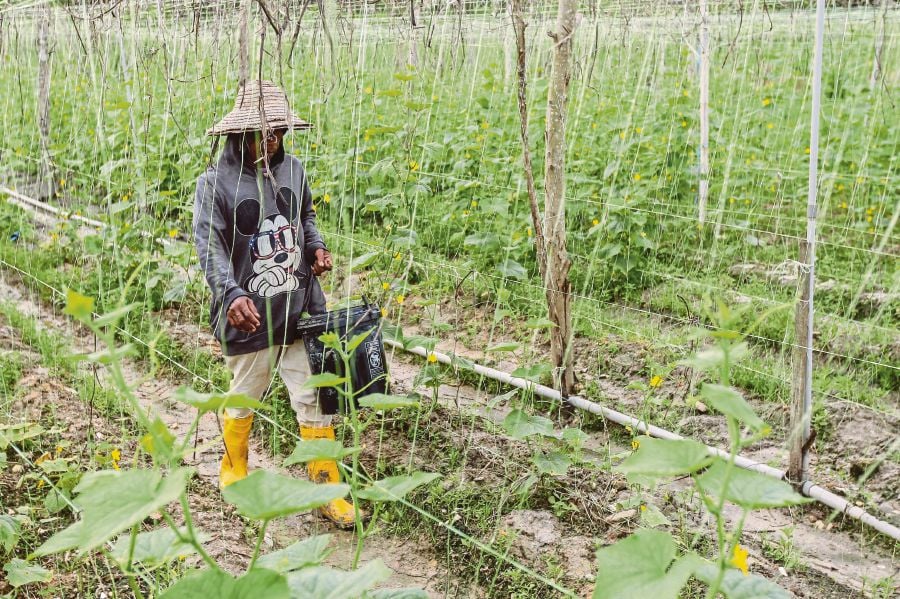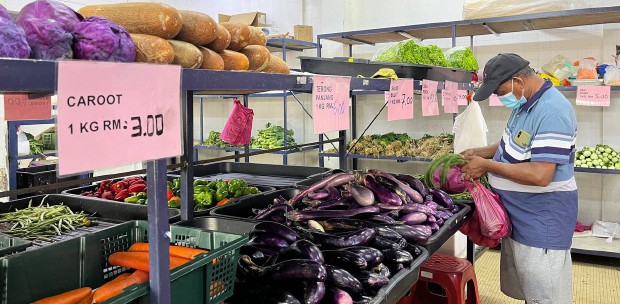JOHOR BARU: The country is expected to see a fall in the production of vegetables by as much as 40 per cent nationwide next month due to a labour crisis being faced by farm operators.
Federation of Vegetable Farmers Association of Malaysia chairman Lim Ser Kwee said this follows the recent government announcement that the foreign labour quota which remained unused by March 31 would be cancelled.
He said the lack of labour has led to a spike in prices of vegetables in the market due to the decreasing supply of produce.
"The (announcement) has had a big impact on the agriculture sector, particularly in vegetable farming as it is entirely dependent on foreign labour. Locals are not interested in working in vegetable farms as they view it as a 3D (difficult, dangerous and dirty) job, so the sector has to rely on foreigners.
"The critical issue of labour in vegetable farms has only just recovered after the Covid-19 pandemic affected it badly. Now, we expect it to return to these levels in the middle of Ramadan as many of our foreign labourers will be returning to their respective countries to celebrate Aidilfitri.
"Many are expected to go on long leave and some will likely not return. With the government's decision and foreign workers leaving (for Aidilfitri), we estimate that vegetable production will be down by 40 per cent or more and this will cause market prices to shoot up beginning next month," he told Berita Harian.
On Sunday, Home Minister Datuk Seri Saifuddin Nasution Ismail had said the government would not budge from the May 31 deadline for the hiring of foreign workers through the Labour Recalibration Programme 2.0.
He had said the decision was made collectively by all enforcement agencies under the ministry and relevant ministries involved in the programme, adding that the number of foreign workers, based on approved quotas so far, may reach the ceiling set by the Economy Ministry before May 31.
As such, Saifuddin told employers in need of foreign labourers to hasten their applications.
Saifuddin said this in response to the National Chamber of Commerce and Industry's (NCCIM) calls for the government to reassess the decision to cancel the unused foreign worker quota by March 31.
It was also reported that Small and Medium Enterprises Association chairman Datuk William Ng had said the government's decision did not take into consideration the dynamic nature of the business landscape.
Elaborating, Lim said employers in the agriculture section were facing a difficult situation following the government announcement as there was only a short time given to them to source for foreign labour and get the necessary paperwork in place.
He said employers were also required, in that short time, to ready accommodation and proper facilities for these workers, which would take up a high cost.
"Employers whose quotas are approved will also have to hold interviews for foreign workers will also have to apply for the Certificate of Employees' Accommodation under the Employees' Minimum Standards of Housing, Accommodations and Amenities Act 1990 in the Foreign Workers Centralised Management System (FWCMS), and this process usually takes about a month."
As such, Lim said he hoped the government would grant an exception to the agricultural sector, especially involving vegetable farms, as far as the cancellation of foreign worker quotas were concerned.
"This is to ensure that the country's vegetable supply is not affected and the prices of produce do not skyrocket, ultimately causing distress to the people," he said.





